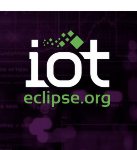| Eclipse IoT Developer Survey 2019 |
| Written by Harry Fairhead | |||
| Friday, 19 April 2019 | |||
|
The Eclipse Foundation’s IoT Working Group has released the results of its 2019 IoT Developer Survey, an annual exercise intended to deliver valuable insight into programming languages, platforms, infrastructure and tools for building IoT solutions. This is the fifth year that this survey has been conducted and the number of participants this time, over 1700, had more than trebled from last year's 500. Two-thirds of of respondents are currently working professionally on IoT projects, or are expecting to do so in the next 18 months. In all 80% if respondents were already actively involved in doing or learning about IoT, 30% of them outside work. With regard to key industry areas the survey report noted that Education had the biggest year on year increase but the the top three industry focus areas remain the same as last year: IoT Platforms, Home Automation, and Industrial Automation: In fact IoT Platforms, a category which was only introduced in 2016, the survey's second year, has occupied the top slot ever since. Commenting on this on the Eclipse Foundation blog, Mike Milinkovich writes: The fact that IoT Platforms is consistently year after year the number one focus for IoT developers is interesting. It implies that enterprises and industrials are putting resources into building their own IoT platforms for use by their companies. To me this suggests that industrial IoT is going to be a huge opportunity for hybrid cloud, as companies build and run IoT solutions on-premise based using modern, open technologies. Another consistent finding is that, as last year AWS, Azure, and GCP are the leading IoT cloud platforms, reflecting their market share: When it comes to hardware the report notes the dominance of Arm, which accounts for two-thirds of constrained devices, i.e. resource limited ones such as PIC, ESP8266 and some Arduinos. Arm variants are also used by 70% of IoT gateways and edge nodes while Intel x86/x86_64 is used by 42%. In terms of languages C emerged as the programming language of choice for constrained devices, while Java was most popular for gateways/edge nodes and IoT cloud. Milinkovich comments: "Neither of those findings are surprising. C and C++ have long been the languages of choice for small embedded systems where minimizing memory space and power consumption, and maximizing processor utilization are key. Java is the dominant language and platform where the memory and processing resources are larger, and the complexity of the systems are greater. In particular, Java is the language of choice for most cloud infrastructure projects, so seeing it lead in IoT cloud is consistent with that." Turning to operating systems, Linux dominates overall. However Windows is also used by over half of developers for gateways and edge nodes. On constrained devices (embedded and mobile) FreeRTOS is the top OS. Looking at Linux distributions the report notes the prevalence of Debian and its derivatives, Raspbian and Ubuntu/Ubuntu Core, which were picked by a least a third of respondents: For communications protocols. while almost half of participants use HTTP, probably for RESTFul web services, MQTT is the strongest of the IoT-specific protocols (42% usage), followed by Websocket (26%). The top connectivity protocols are TCP/IP (54%), WiFi (48.2%) and Ethernet (41.1%) The report notes that while Satellite and Thread more than doubled year-on-year, usage of specialized connectivity solutions (LPWA, Zigbee, Z-Wave, 6LoWPAN) each didn't exceed 15%. While Visual Studio Code has seen a considerable year-on-year surge from 23% to 32%, the Eclipse Desktop IDE is the most widely used (46%) and almost 10% more use the cloud-based tooling system, Eclipse Che: According to Milinkovich: It is not at all surprising that the Eclipse IDE has a strong franchise with IoT developers, given the dominance of C and Java. The Eclipse CDT project has long been hugely important in the embedded software space. The past decade CDT has been used by virtually every chip, SOC, and RTOS company as the basis for their toolset. Those developer solutions also typically use additional tools such as the Target Management Framework, and Remote Systems Explorer that were specifically designed with the embedded developer in mind. That, coupled with the Eclipse IDE’s broad use amongst professional Java developers makes its leadership in IoT clear.
More InformationRelated ArticlesIoT Developers Gaining In Experience To be informed about new articles on I Programmer, sign up for our weekly newsletter, subscribe to the RSS feed and follow us on Twitter, Facebook or Linkedin.
Comments
or email your comment to: comments@i-programmer.info
<ASIN:1871962455> <ASIN:1871962463> |
|||
| Last Updated ( Saturday, 27 April 2019 ) |







